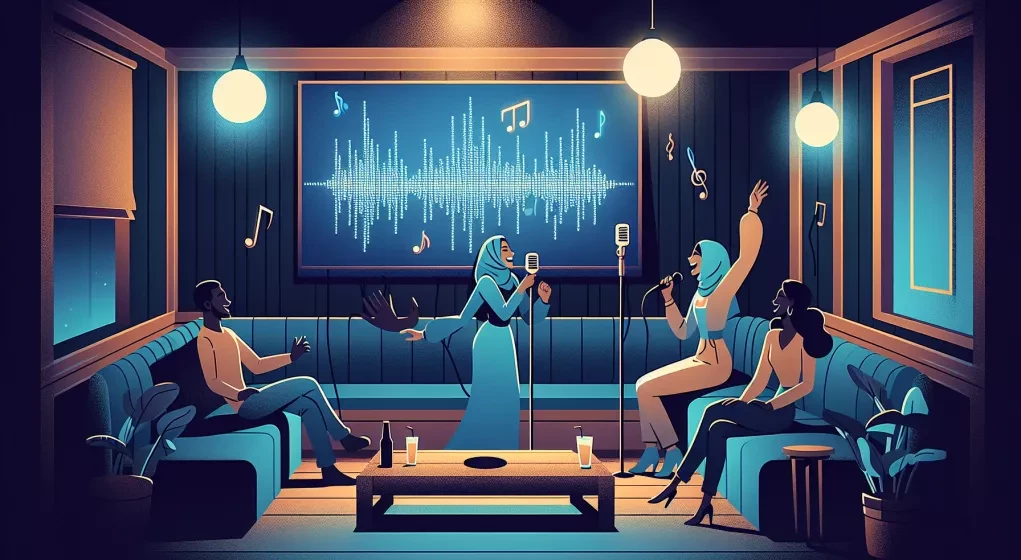In the labyrinthine splendor of the Grand Canal Shoppes, a high stakes drama is unfolding beneath the glimmering facades of The Venetian’s opulent corridors. Kamu Ultra Karaoke, an illustrious haven of nocturnal revelry, finds itself ensnared in a legal imbroglio with the staggering sum of $264 million hanging in the balance, a figure as dizzying as the club’s vertiginous rental fees.
The plaintiff, Sybersound Records—a formidable entity whose melodies pulse through the global veins of Universal Music Group—alleges a brazen contravention of propriety. According to their grievance, Kamu has been streaming the revered tunes of their instrumental library, a treasure trove numbering 75,000 anthems of the contemporary zeitgeist, featuring icons such as Taylor Swift and Lady Gaga, without the sanctity of licensing agreements.
Since its grand debut in the sultry haze of July 2020, Kamu’s private karaoke chambers—resplendent enclaves that command a king’s ransom of up to $4,000 as the night deepens—have allegedly been abuzz with the unauthorized echoes of Sybersound’s copyrighted portfolio.
The legal odyssey, embarked upon within the hallowed halls of the US District Court for the Central District of California, ensnares not only Kamu Ultra Karaoke and its proprietor, Jeff Kim, but also casts a net over the Venetian’s parent company, Apollo Global Management Inc., and the stewards of the Grand Canal’s serpentine expanse, Brookfield Properties.
A defensive gambit by Apollo’s emissary to the Las Vegas Review-Journal decries this inclusion as nothing more than a garish lunge for the spotlight. Notwithstanding, the sordid alliance with The Venetian and its stewardship appears a tenuous thread, particularly in the wake of Brookfield Properties’ purging of the indoor mall’s adored living statues and musicians—a revelation that caught many a tourist unawares.
At the heart of this maelithe lies a quandary of what constitutes fair use in the digital age. The counsel for Sybersound, Peter Haviland, elucidates a delineation between the personal leisure of home karaoke enthusiasts and the cutthroat commerce of businesses seeking to capitalize on unlicensed melodies. The demand for a court-issued restraining order reverberates through the corridors of justice, a clarion call to halt the unremunerated serenades flowing through Kamu’s palatial sprawl.
As the gondolas glide upon the faux Venetian waterways below, above them looms a battle over the sanctity of intellectual property. The outcome of this clash not only promises to sway the fortunes of those embroiled within it but also to pen a new verse in the grand opera of copyright law, where every note and lyric is a pawn in a game of legal chess.






